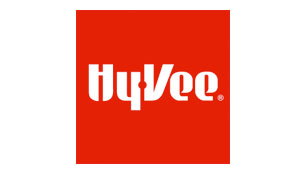Second Black and Brown Business Summit looks to secure future of diverse businesses
Plus, business owners share current challenges, hopes

SARAH BOGAARDS Apr 19, 2022 | 7:09 pm
10 min read time
2,455 wordsArts and Culture, Retail and Business
Angela Jackson is senior vice president of diversity, equity and inclusion at Athene and the chairperson of the West Des Moines Chamber of Commerce’s DEI committee, which plans the Athene Black and Brown Business Summit. She is also the owner of the Great Frame Up, a custom framing store in West Des Moines she started 17 years ago.
Jackson’s perspectives as an executive and small business owner reflect her stake in the goal to position Iowa and the Central Iowa region as leaders and investors in diversity, equity and inclusion efforts in “a major way and in a meaningful way.”
When the chamber’s DEI committee was thinking about this year’s summit, which took place April 21 and 22, Jackson said they landed on a theme of helping businesses owned by people of color build a legacy and generational wealth to secure their futures.
“In a nutshell, we’re trying to elevate the conversation in a way that [it] hasn’t been elevated, and is not elevated in other spaces,” she said.
Conversations about building wealth are happening in Central Iowa, but minority business owners often “are just not in those rooms,” she said, making the summit a space where they can talk to peers, listen to advice and feel welcomed.
“Oftentimes, you can go to chamber events, and you can be the one person of color, you can be a standout … but when you have camaraderie, you get a lot more creativity than we do when we feel intimidated, and [you’re] able to ask those questions,” Jackson said.
With many diverse businesses being first generation, they also are more likely to not have had access to the resources to understand and develop a succession plan.
One misconception Jackson said minority business owners may have about building their business’s legacy is that a family-owned business has to stay in the family to have a future.
“[Family] is not the only way you can leverage your resources. You can also get investors that can come in and purchase or merge with your company,” she said.
The value of owning the land and the building their business operates in as opposed to renting space is another notion diverse business owners may not have thought of, Jackson said.
Sessions at the summit covered these topics as well as wealth-building in the context of specific industries, marketing and social media, and starting and scaling a business.
Pamela Jolly, who has 20 years of corporate and entrepreneurial experience in financial services, management and marketing, and entrepreneur Daymond John of “Shark Tank” gave keynote speeches. Local business leaders like Pernell Cezar, CEO and co-founder of BLK & Bold, and Jacob Derritt, business banking area manager at Chase, participated in breakout sessions.
The first Black and Brown Business Summit last year offered Amner Martinez, founder and CEO of Infinite Resources, a “hub of connections” and a sense of validation that he and the other people of color he was surrounded by belonged in the business world.
When he started in the staffing and recruiting industry in 2003 he was out of his depth at first. His family came to Iowa from Guatemala as part of the “meatpacking migration” and he worked in the field until a local staffing agency hired him for his bilingual skills.
He spent the next five years building a foundation of skills, which ultimately led him to start Infinite Resources in 2019, connecting diverse job seekers with Central Iowa companies.
Martinez said wealth-building for Infinite Resources has been a gradual process as he’s “in the middle of breaking even” and continually seeking advice, but starting the business in the first place wouldn’t have been possible if not for the sacrifice of his parents before him.
“They left their homeland to come here to another country where you don’t speak the language, you’re undocumented, with kids and everything. I feel like they did that for us. … Now it’s my responsibility for my kids to have a better opportunity than I did,” he said.
He said he runs on the motto that “the more people he meets, the more successful he will be.” This was the motivation to help launch the Latino Trade Network in January with the West Des Moines chamber, so Latino business owners can connect with each other and those outside the Latino business community have an entry point.
Blanca Plascencia said she feels the same need for a community group that can relate to her challenges as a restaurant owner and advise her in situations like the current one of rising costs in the restaurant industry.
She and her husband opened the Mexican restaurant El Fogon five years ago after spending a total of four years going to different banks determining what they needed to secure a loan before getting one through the U.S. Small Business Administration.
Plascencia learned along the way that they started with some of the key components, like a business plan. But not knowing where to learn about getting a loan and navigating financial documents and resources only printed in English contributed to the delays.
Now established with two locations in the Des Moines area, they are working on making El Fogon a franchise so other Hispanic people can have the same opportunity to own and operate a business, but that means gaining their trust.
Plascencia said Hispanic people are often the kinds of entrepreneurs who will “just go out and do things” more informally and it would help to bring them into the fold and resolve their concerns and questions.
“I would love to have more participation from Hispanics,” she said. “I don’t know how to reach out and gain the trust from them.”
Jackson, Martinez and Plascencia told the Business Record more about the needs of minority-owned businesses and ways the Central Iowa business community can help support them.
This Q&A has been edited and condensed for clarity and brevity.
What are the top issues you see facing the diverse business community right now?
Jackson: I think that we, as a whole, have a hard time getting funding that’s needed. And Iowa has not been on the forefront, but a lot of places have been a little bit behind when it comes to lending practices. If you had to put your hand on one thing that’s concrete, one thing that we can do as a community is to fund businesses better. But I think, overall, being intentional in supporting diverse businesses in our everyday practices is one of the big things. In order to build generational wealth, you have to have resources, you have to be able to get support. Part of that is cash flow, but part of it is also leveraging, and all those resources require understanding of the best places to build, understanding of the best industry. … You have to be able to understand if one industry is your sweet spot, then where are you getting the money in this area? You can be in any industry and really not leverage all of your resources.
Martinez: I think it’s just the knowledge of resources like not knowing what’s out there and accessibility to those resources. What I’m finding out is that if you’re not organized, if you don’t have everything together, it’s really hard for you to get approved to get a loan or to get a certification like TSB [Targeted Small Business] or a small business loan. I think the challenge is just the access. I’m sure there’s a lot of stuff to share but there’s no hub. It feels like it’s really scattered; there’s not one place that you can go.
Plascencia: We just need guidance. We just need mentors. Like right now, all the prices of everything are going up. We haven’t really changed our menu or our prices but we’re in the process of doing that because the meat went up and the alcohol is going up, and if I could have some guidance or some help in getting to someone that has more experience that will know better and give us some resources. I told my husband some people go to business school to learn and pay for that school. We didn’t go to business school to learn, but we’re paying the price because every time we lose money, we’re learning something, but it’s like an informal education that we paid for with the mistakes. Also as a Hispanic community sometimes, for example, I have a restaurant and sometimes when I meet with other people that might own a restaurant, they might see me as a competitor. We need to understand that we can help each other and it’s OK, that’s not going to affect us, it’s going to make us better, stronger. I think it’s a lot of changing the mentality.
Do you feel businesses owned by people of color are positioned to engage the wider business community in conversations on diversity and equity?
Jackson: Yeah, definitely, I think it’s just by showing up in the spaces and being very fully present in those spaces. Also, making sure that people recognize a lot of the staff of businesses of color happen to be people of color, they happen to be diverse. We all have networks, and those networks include no less than 100 people, but a lot of your networks tend to be people who look like you. So the more that we network, and the more that we hire people who are in our communities, the more that we’re able to be impactful. And that’s the other part of building a legacy of wealth: If I am also able to hire people who are underrepresented, who are diverse, who may have had not so stellar backgrounds, who may be interns, who may be individuals who would not necessarily be graduating from whatever institutions, but they can work for a small business or they get what you call your first break for their position that they’re working in a minority business, that helps catapult their career. In turn, they can be intentional and also grow for their family, and that’s building another layer, another legacy of wealth in your community by just the people that you hire, and the fact that now you’re able to grow your business so now you can elevate their benefits and you can reward them in significant ways, ways that they would not have been able to achieve but for you.
Martinez: I might go off topic here, but especially Black people, especially African American people, they are the driving force in a lot of aspects of society: culture, music, arts. They’re the original influencers of music, clothing, arts and sports. They’re the original people, and then people grab their stuff and then they run with it and they usually don’t get credit. As a brown person and a Latin American person, we bring a lot of culture, we bring a lot of food, music, spirit. So, yes, Black and brown people do drive conversations forward. Black women are always on the forefront of conversations, and then somebody else non-Black comes in, and then they kind of run with that. That’s one of the things about the Black and Brown Summit that I really liked was that the people that needed to get the credit got the credit. It was methodically put together where it didn’t feel like there was tokenization, it didn’t feel like there were people taking credit for other people.
Plascencia: Of course, I think so. It is a question of trust. The Hispanic community needs to know that the effort that they put in is going to work, is going to grow into something bigger. It’s not like, ‘I guess we’ll get together, we’ll talk about this,’ and then nothing happens. I think as long as others can earn their trust, and they know it is something good for real, I think they will participate and think about it differently.
How do you want to see the Central Iowa business community elevate and recognize businesses owned by people of color?
Jackson: I think people want to know the communities where they live, and where they’re working are supportive of diverse business and supportive in a concrete, intentional way. I think people need to be transparent with what they’re doing and be honest. It’s a journey; nobody’s perfect. We’re all learning how to do it together. Supplier diversity is a big piece of that, having a commitment to working with different leaders and their procurement departments in the corporate space, but also just in general, buying habits. There’s a website where we have a list of all Black and brown businesses who paid money to advertise on the website. So be intentional about saying, “OK, let me look at the site and see, are there some resources, are there some products or some services that I can try using one of these businesses? I may not have used them before, or I might use them all the time.”
Martinez: This is an easy one for me. The dollar amount, where are you spending your money? There’s many ways to have an impact, but be more thoughtful about where you spend your money. I’m getting good opportunities, I’m getting doors opened. But these big companies need to give the smaller businesses like myself, give us a shot. That’s all we’re asking for. We’re not asking for special treatment, just let us be part of your vendors and let us prove to you that we have the exact same service or better. Let us prove that. If we fail, we fail, but at least we get the chance. Also, to have a company or corporation you need a team. So whoever’s putting that team together has to be somebody that has the right lens. Right now big corporations have the luxury to have an HR manager, an HR generalist and then six recruiters. Your recruiters or your HR manager has to be somebody that gets it. You can’t have a person looking for diverse candidates if that person is not a diverse recruiter. Infinite Resources is good at what we do because our recruiting lens is different.
Plascencia: One thing can be appreciation. Some people think that because they are at a Mexican restaurant, they get everything for cheap and they can just disrespect people. Sometimes they don’t appreciate our work or the quality of the food. They don’t appreciate or respect our people, and that hurts. I want to create a better environment at work. It’s not everybody, because we have a lot of very nice people, very friendly people. I would like to see more diversity and more appreciation in general.











